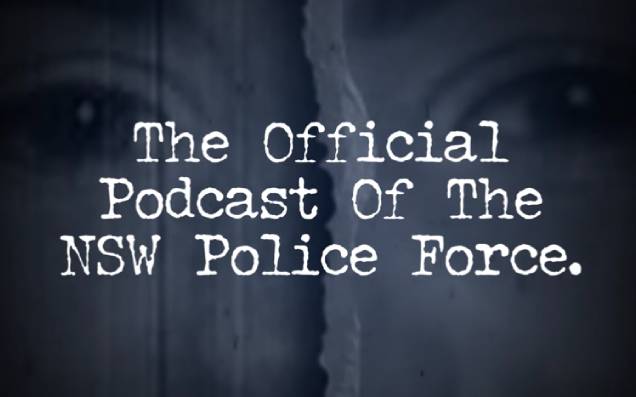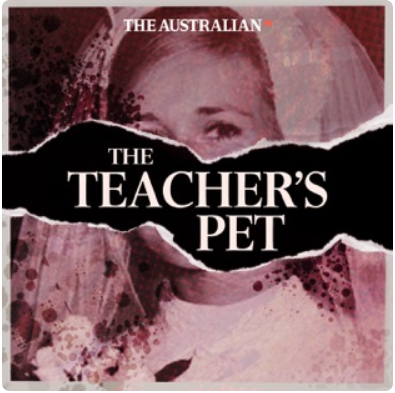
The NSW Police has launched the first episode of its very own podcast, State Crime Command – Investigations, which claims it will explore long-standing cold cases by “reaching out to the public seeking information” to help close them, as well as “diving into the minds of investigators as they work to close active cases and bring justice to victims”.
But if the content is produced by the police, does that then mean it’s immune from critique – an important part of the true-crime journalism realm?
It’s not a new thing that the police are content creators, whether that’s allowing access for reality TV shows, seeding out footage to newsrooms, or creating on-message memes for their social media channels. But suddenly becoming a creator within the true crime sphere flips the authorities into the storytellers, instead of being a part of the story.
The importance of this is that it creates a power shift of who holds and directs the narrative, which then has the ability to affect how important characters in cold cases are presented – namely, the police.
🎧BRAND NEW🎧 Check out the official podcast series of the NSW Police Force! State Crime Command takes you into the minds of the investigators as they work to close active cases and bring justice for victims.
Apple: https://t.co/HbNjCW8ST9
Spotify: https://t.co/kcOsUIO1xc pic.twitter.com/JbUvJKVoCn
— NSW Police Force (@nswpolice) August 14, 2020
Will this new police podcast give us a transparent exploration of a case, openly critiquing the authorities and their handling of cold cases, and what has left them unresolved for so long? Or are we going to wind up with an opportunity to “help solve a case” that comes across more as a directive than a collaborative effort?
It raises questions over whether officers would be willing to investigate if sub-standard police work played a hand in decades-old cold cases remaining unsolved.
Notably, in the disappearance of Lynette Dawson, it’s been suggested that police went easy on their interrogation of prime suspect Chris Dawson. No serious investigation was launched into Lynette’s disappearance for eight years, and a retired officer said it was likely cops were influenced by Dawson’s “star power”, and that there were “numerous examples of that” in the past. (Chris Dawson has pleaded not guilty to murder and is currently awaiting trial.)

This isn’t the first time the cops have gotten involved in direct-to-public content production, as pointed out by Osman Faruqi on Twitter.
The NSW Police podcast looks like it’s taken a big note from the NYPD, who launched Break In The Case last year. It has been labelled as “self-serving” and does little but “trumpet the prowess of law enforcement, at a time when deep, and deserved distrust of police is ever more present.”
It looks like they’ve stolen this idea from the NYPD. This is an interesting critique of police “blurring the line between outreach and entertainment” in that instance. This development warrants more attention in Australia imo https://t.co/tMBNOADPLl
— Osman Faruqi (@oz_f) August 17, 2020
Vulture encapsulated the issue of police being the storyteller in a true-crime podcast perfectly in their critique of the burgeoning ‘copcast’ genre.
“It’s one thing for, say, a retired cop to write books about his life on the force to better increase public understanding of police work (or just to provide entertainment), or for an active-duty cop to write fiction off the clock as a means to explore larger ideas about the role of police in society. But it’s another thing altogether when we’re talking about active law-enforcement officials producing what can essentially pass as entertainment products in order to achieve their goals.”
The beauty of true crime storytelling is that it actively enlists the audience to become part of the detective squad. Why should an audience provide free labour for authorities who are already met with suspicion, and – let’s not forget – are supposed to be doing the solving in the first place? Why should we help when at the best of times, they have failed to help us so often?
Take The Murder Squad for instance; hosted by investigative journalist Billy Jensen and retired cold case investigator Paul Holes (emphasis on ‘retired’ here), listeners are invited into the inner echelon to help piece together cold cases and it never feels like they’re being exploited for their time and tip-offs.

Similarly, the recent I’ll Be Gone In The Dark docuseries explores a similar dynamic, spearheaded by a crime writer and a couple of amateur sleuths who connected on online forums. The police act as a source only, which allowed Michelle McNamara to be critical of their previous work and how sexual assault victims were historically treated.
So should we be wary of a police podcast masquerading as true-crime journalism? Look, probably. As with just about everything that has a high chance of holding bias, doing your own research as well is important to developing a well-rounded perspective.



